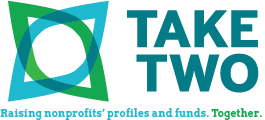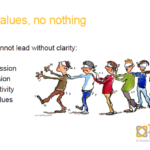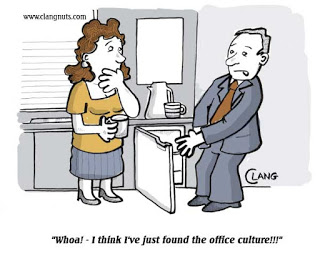
Mmm… Making Meetings Meaningful (Again!): 3 Tips
Years ago, after a long day of facilitating meetings, I was having dinner with some of the meeting participants, and after a big sip of wine, I said, “Gosh, but I bet most of you just want to hit the snooze button on these meetings, right?” Wrong. The woman next to me said, “Well, actually I enjoy meetings.” I thought to myself, holy guacamole! Is it possible I’ve just met the only person on the planet who likes meetings?!
Turned out, the joke was on me. The entire group – who didn’t work at the same place – said that they liked meetings, with qualifiers. It was an eye-opening experience I’ve never forgotten. Not only did I realize that some meetings can be interesting and productive, but more importantly, that I was walking around making the assumption that my views on meetings were universal. In fact, I was committing the first mistake about meetings: assuming that everyone was on the same page.
Having learned a thing or two since then, here are three less-talked about approaches for making meetings meaningful again.
- Identify the type of meeting up-front. Most meetings serve one or more of three purposes:
- An exchange of ideas – which requires listening and speaking and thinking through the ideas and responses.
- An exchange of information that requires acknowledging the information shared, identifying implications from that information, and deciding actions or responses to the information.
- An exchange of ideas and information to solve a specific problem.
Most meetings are a combination of exchanging ideas and information, but not all with the goal of solving a problem. Being aware of the type of exchange and the different skills and responses required saves time – so you don’t try and come up with a response to a hypothetical, for instance – and energy and foster a more productive meeting.
- Be willing to change your mind. Unless you’re going into a meeting with the single goal of convincing people of a pre-determined decision or to share some specific piece of information, try hard to listen and be willing to accept a different point of view. If you can, create a culture where changing your mind within a meeting context is encouraged. The key here is the phrase “within a meeting context” — this can be the space to disagree and change one’s perspectives. But going back on decisions made during a meeting? That’s a practice that can lead to chaos, and to colleagues/staff viewing meetings as a waste of time.
- Practice generosity: share ideas, air time (by actively listening), credit, cupcakes. People – even if meetings are part of their job – are being generous by making time for meetings. Reciprocate that generosity in whatever way possible.
On February 7, 2017, we led a webinar, along with one of our partners, SEED, on how to How to Facilitate Productive and Meaningful Meetings for the Foundation Center.
You can view and enjoy the webinar by clicking here.





